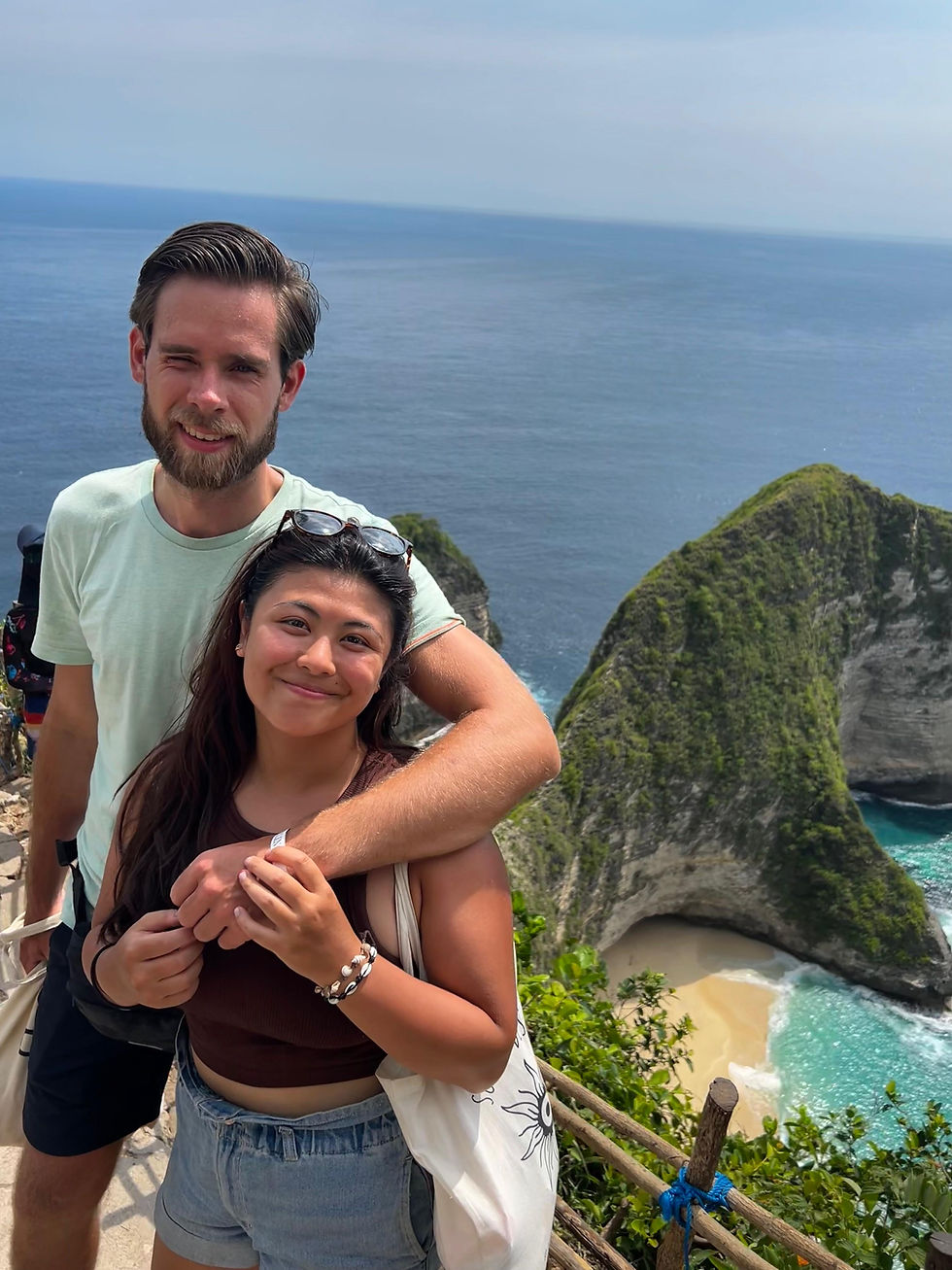What can ancestral healing look like to you?
- Nina Ashley Bach

- Aug 25, 2025
- 3 min read
Updated: Aug 27, 2025
Written by Nina Ashley Bach
What questions arise?
Ancestral healing. Perhaps a word thrown around a little bit too much — maybe not thrown around enough. The problem and beauty of it is its very personal origin. The accumulation of connections that had to happen to make you who you are today is endless.
It then begs the questions:
Who am I reaching out to ancestrally?
What am I needing to heal within me?
Where can I find these answers?
When is it the right time to reach out?
Why is it necessary to heal with their power?
How can I begin the conversation of our bond?
Lots of questions, very few answers.
Perhaps the point is not to gain answers, but simply to find meaning, purpose, self.
The grey space in the middle
In the Western world, we are built into a very particular frame of mind — of being, of seeing. Growing up in Southeast Asia, yet with a Danish father and Malaysian (Indian/Indigenous) mother, the conversation on ancestry ran deep on one side, while the other side stopped quite abruptly.
Torn between such different cultures, I never got the full picture of my identity from either — always fragments of a whole that were so close, yet so out of reach. Because then, who am I to pry so intimately into the mouths of those with knowledge who are still alive today?
Is it answers I need, or is it simply protection, understanding, support?
Over time, I accepted the fact I would never be enough this or enough that — which was okay with me, because I liked just being Nina. But I continued to feel this pull toward something bigger than myself, and yet something that could be found within me as well as around me.
Maybe not necessarily something tangible — but more of a feeling.
Womanhood

My aunt once told me that my great-grandmother was our village’s healer. And that her mother, my grandmother, also adopted this role amongst the family.
Hearing this in passing — which is usually where you get the most gold during conversations with your elders — healed me in a way I did not know I needed.
Being a mediator, facilitator, performer, healer — I like to think of my work reaching others, perhaps not in the way the women in my family did, but still adopting the idea of reaching out and helping.
In a world where, as women, we are constantly being poked and prodded for who we are, what we are, how we do it, where we do it, why we do it — it gives me relief to be understood not by my immediate surroundings, but by those who came before me.
I never had the chance to meet either my great-grandmother or grandmother, but just as sure as I am of my feet on this earth, I am sure their essence lives true through me.
What can this look like?
So, how do I do this? Well, first — it will always look different depending on who you are.
For myself, I found that when I truly felt lonely or defeated, I started creating, writing, and performing about my ancestors. I felt the more you re-establish that bond in the physical world, the more chance I had of being found and received.
Reach out to them in darker times — asking not for answers, but to guide you and nudge you toward the decisions that will bring fruition in your life.
I make altars in my room for passed loved ones and deities, and I take moments to thank and ponder with them before sleeping. It does not have to be a grand gesture — they live through you, not by you.
Your actions, as small or big, with them in mind — just makes the choices that much richer in becoming.
Another side of it is diving deeper into your history and navigating the potential experiences and livelihood of your ancestors — and what their stories can teach you about your way of being presently.
Ultimately, it comes down to the six questions I mentioned at the start.
Additionally, this only needs to make sense to you — take your time, be kind, and be open to receiving the ways in which their wisdom is found within you.
Are you ready to receive wisdom from your ancestors?
As I will always do, I leave you with three questions to ponder, to write down, to discuss. That is all up to you:
Is there someone physically you can reach out to for more knowledge on your history?
What are you hoping ancestral knowledge can provide you?
Why is reaching out something you need in this moment?
From my heart to yours, Nina
Poet, performer, workshop facilitator, mediator




Comments